https://ebookgate.com/product/orthognathicsurgery-principles-and-practice-1-har-psc-edition-
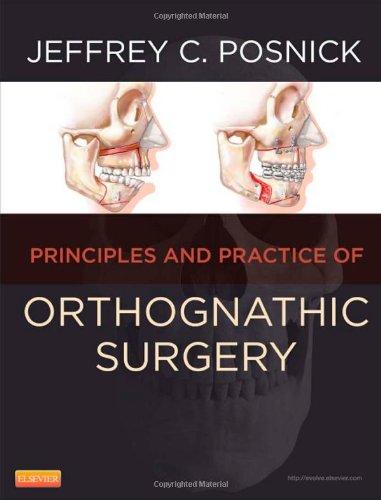
More products digital (pdf, epub, mobi) instant download maybe you interests ...
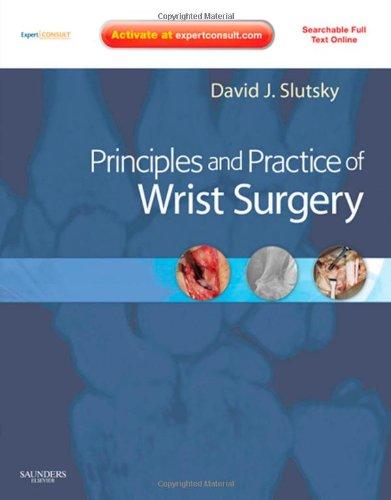
Principles and Practice of Wrist Surgery 1 Har/DVD/ Edition David J. Slutsky Md Frcs
https://ebookgate.com/product/principles-and-practice-of-wristsurgery-1-har-dvd-edition-david-j-slutsky-md-frcs/
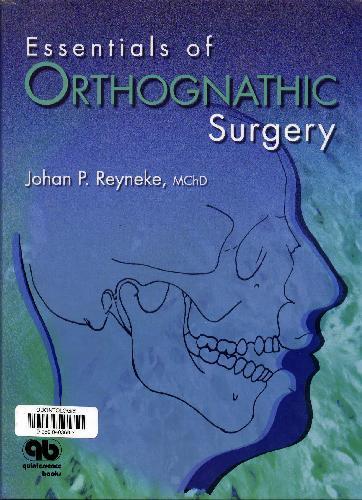
essential of orthognathic surgery 1st Edition Johan P. Reyneke
https://ebookgate.com/product/essential-of-orthognathicsurgery-1st-edition-johan-p-reyneke/
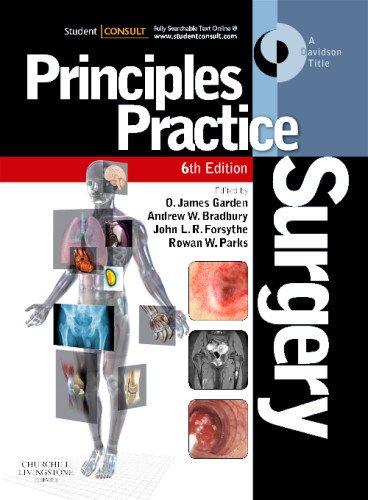
Principles and Practice of Surgery 6th Edition O. James Garden
https://ebookgate.com/product/principles-and-practice-ofsurgery-6th-edition-o-james-garden/
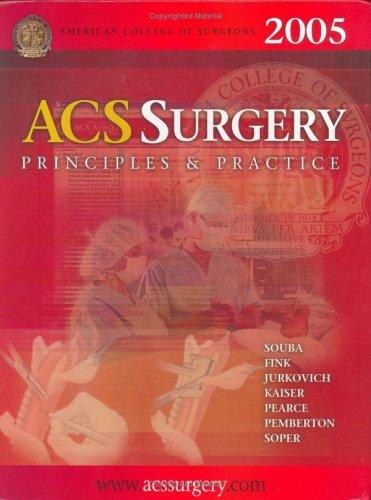
ACS Surgery Principles Practice 2005 edition Wiley W. Souba
https://ebookgate.com/product/acs-surgery-principlespractice-2005-edition-wiley-w-souba/
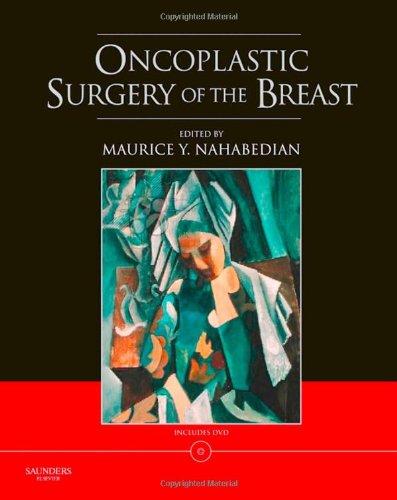
Oncoplastic Surgery of the Breast with DVD 1 Har/Dvdr
Edition Maurice Y Nahabedian Md Facs
https://ebookgate.com/product/oncoplastic-surgery-of-the-breastwith-dvd-1-har-dvdr-edition-maurice-y-nahabedian-md-facs/

Principles and Practice of Head and Neck Surgery and Oncology Second Edition Paul Q. Montgomery
https://ebookgate.com/product/principles-and-practice-of-headand-neck-surgery-and-oncology-second-edition-paul-q-montgomery/

Data Visualization Principles and Practice 2nd Edition
Alexandru C. Telea
https://ebookgate.com/product/data-visualization-principles-andpractice-2nd-edition-alexandru-c-telea/
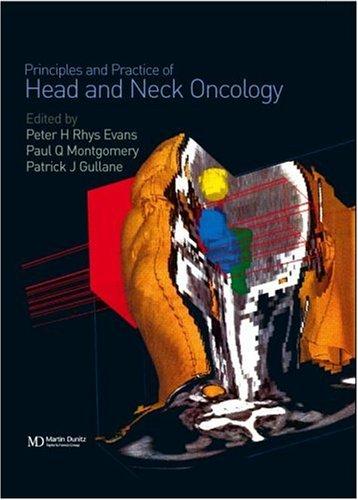
Principles and Practice of Head and Neck Surgery and Oncology 1st Edition Peter H. Rhys Evans
https://ebookgate.com/product/principles-and-practice-of-headand-neck-surgery-and-oncology-1st-edition-peter-h-rhys-evans/
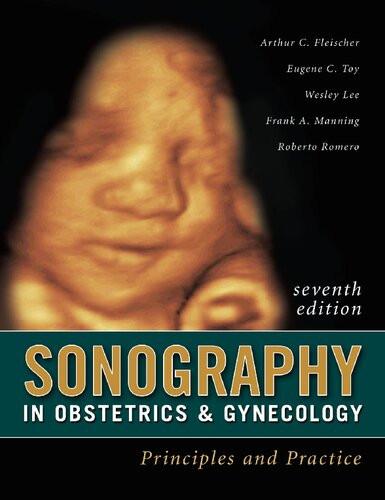
Sonography in Obstetrics Gynecology Principles and Practice 7th Edition Arthur C. Fleischer
https://ebookgate.com/product/sonography-in-obstetricsgynecology-principles-and-practice-7th-edition-arthur-cfleischer/
Another random document with no related content on Scribd:
an explanation,’ he said. Resistance was impossible—a couple of policemen were already close by—and I told my cabman to turn round and drive to the Governor-General’s house. The weaver remained in his cab and followed us.
It was now evident that the police had hesitated for ten days to arrest me, because they were not sure that Borodín and I were the same person. My response to the weaver’s call had settled their doubts.
It so happened that just as I was leaving my house a young man came from Moscow, bringing me a letter from a friend, Voinarálsky, and another from Dmítri, addressed to our friend Polakóff. The former announced the establishment of a secret printing office at Moscow, and was full of cheerful news concerning the activity in that city. I read it and destroyed it. As the second letter contained nothing but innocent friendly chat, I took it with me. Now that I was arrested I thought it would be better to destroy it, and, asking the detective to show me his paper again, I took advantage of the time that he was fumbling in his pocket to drop the letter on the pavement without his noticing it. However, as we reached the Governor-General’s house the weaver handed it to the detective, saying, ‘I saw the gentleman drop this letter on the pavement, so I picked it up.’
Now came tedious hours of waiting for the representative of the judicial authorities, the procureur or public prosecutor. This functionary plays the part of a straw man, who is paraded by the State police during their searches: he gives an aspect of legality to their proceedings. It was many hours before that gentleman was found and brought to perform his functions as a sham representative of justice. I was taken back to my house, and a most thorough search of all my papers was made: this lasted till three in the morning, but did not reveal a scrap of paper that could tell against me or anyone else.
From my house I was taken to the Third Section, that omnipotent institution which has ruled in Russia from the beginning of the reign of Nicholas I. down to the present time—a true ‘state in the state.’ It began under Peter I. in the Secret Department, where the
adversaries of the founder of the Russian military empire were subjected to the most abominable tortures, under which they expired; it was continued in the Secret Chancelry during the reigns of the Empresses, when the Torture Chamber of the powerful Minich inspired all Russia with terror; and it received its present organization from the iron despot, Nicholas I., who attached to it the corps of gendarmes—the chief of the gendarmes becoming a person far more dreaded in the Russian Empire than the Emperor himself.
In every province of Russia, in every populous town, nay, at every railway station, there are gendarmes who report directly to their own generals or colonels, who in turn correspond with the chief of the gendarmes; and the latter, seeing the Emperor every day, reports to him what he finds necessary to report. All functionaries of the empire are under gendarme supervision; it is the duty of the generals and colonels to keep an eye upon the public and private life of every subject of the Tsar—even upon the governors of the provinces, the ministers, and the grand dukes. The Emperor himself is under their close watch, and as they are well informed of the petty chronicle of the palace, and know every step that the Emperor takes outside his palace, the chief of the gendarmes becomes, so to speak, a confidant of the most intimate affairs of the rulers of Russia.
At this period of the reign of Alexander II. the Third Section was absolutely all-powerful. The gendarme colonels made searches by the thousand without troubling themselves in the least about the existence of laws and law courts in Russia. They arrested whom they liked, kept people imprisoned as long as they pleased, and transported hundreds to North-east Russia or Siberia according to the fancy of general or colonel; the signature of the Minister of the Interior was a mere formality, because he had no control over them and no knowledge of their doings.
It was four o’clock in the morning when my examination began. ‘You are accused,’ I was solemnly told, ‘of having belonged to a secret society which has for its object the overthrow of the existing form of government, and of conspiracy against the sacred person of his Imperial Majesty. Are you guilty of this crime?’
‘Till I am brought before a court where I can speak publicly, I will give you no replies whatever.’
‘Write,’ the procureur dictated to a scribe: ‘“Does not acknowledge himself guilty.” Still’ he continued, after a pause, ‘I must ask you certain questions. Do you know a person of the name of Nikolái Tchaykóvsky?’
‘If you persist in your questions, then write “No” to any question whatsoever that you are pleased to ask me.’
‘But if we ask you whether you know, for instance, Mr. Polakóff, whom you spoke about a while ago?’
‘The moment you ask me such a question, don’t hesitate: write “No.” And if you ask me whether I know my brother, or my sister, or my stepmother, write “No.” You will not receive from me another reply: because if I answered “Yes” with regard to any person, you would at once plan some evil against him, making a raid or something worse, and saying next that I named him.’
A long list of questions was read, to which I patiently replied each time, ‘Write “No.”’ That lasted for an hour, during which I learned that all who had been arrested, with the exception of the two weavers, had behaved very well. The weavers knew only that I had twice met a dozen workers, and the gendarmes knew nothing about our circle.
‘What are you doing, prince?’ a gendarme officer said, as he took me to my cell. ‘Your refusal to answer questions will be made a terrible weapon against you.’
‘It is my right, is it not?’
‘Yes, but—you know.... I hope you will find this room comfortable. It has been kept warm since your arrest.’
I found it quite comfortable, and fell sound asleep. I was waked the next morning by a gendarme, who brought me the morning tea. He was soon followed by somebody else, who whispered to me in the most unconcerned way, ‘Here’s a scrap of paper and a pencil: write your letter.’ It was a sympathizer, whom I knew by name; he used to transmit our correspondence with the prisoners of the Third Section.
From all sides I heard knocks on the walls, following in rapid succession. It was the prisoners communicating with one another by means of light taps; but, being a new-comer, I could make nothing out of the noise, which seemed to come from all parts of the building at once.
One thing worried me. During the search in my house, I overheard the procureur whispering to the gendarme officer about going to make a search at the apartment of my friend Polakóff, to whom the letter of Dmítri was addressed. Polakóff was a young student, a very gifted zoologist and botanist, with whom I had made my Vitím expedition in Siberia. He was born of a poor Cossack family on the frontier of Mongolia, and, after having surmounted all sorts of difficulties, he had come to St. Petersburg, entered the university, where he had won the reputation of a most promising zoologist, and was then passing his final examinations. We had been great friends since our long journey, and had even lived together for a time at St. Petersburg, but he took no interest in my political activity.
I spoke of him to the procureur. ‘I give you my word of honour,’ I said, ‘that Polakóff has never taken part in any political affair. Tomorrow he has to pass an examination, and you will spoil forever the scientific career of a young man who has gone through great hardships, and has struggled for years against all sorts of obstacles, to attain his present position. I know that you do not much care for it, but he is looked upon at the university as one of the future glories of Russian science.’
The search was made, nevertheless, but a respite of three days was given for the examinations. A little later I was called before the procureur, who triumphantly showed me an envelope addressed in my handwriting, and in it a note, also in my handwriting, which said, ‘Please take this packet to V. E., and ask that it be kept until demand in due form is made.’ The person to whom the note was addressed was not mentioned in the note. ‘This letter,’ the procureur said, ‘was found at Mr. Polakóff’s; and now, prince, his fate is in your hands. If you tell me who V. E. is, Mr. Polakóff will be released; but if you
refuse to do so, he will be kept as long as he does not make up his mind to give us the name of that person.’
Looking at the envelope, which was addressed in black chalk, and the letter, which was written in common lead pencil, I immediately remembered the circumstances under which the two had been written. ‘I am positive,’ I exclaimed at once, ‘that the note and the envelope were not found together! It is you who have put the letter in the envelope.’
The procureur blushed. ‘Would you have me believe,’ I continued, ‘that you, a practical man, did not notice that the two are written in quite different pencils? And now you are trying to make people think that the two belong to each other! Well, sir, then I tell you that the letter was not to Polakóff.’
He hesitated for some time, but then, regaining his audacity, he said, ‘Polakóff has admitted that this letter of yours was written to him.’
Now I knew he was lying. Polakóff would have admitted everything concerning himself; but he would have preferred to be marched to Siberia rather than to involve another person. So, looking straight in the face of the procureur, I replied, ‘No, sir, he has neversaid that, and you know perfectly well that your words are not true.’
He became furious, or pretended to be so. ‘Well, then,’ he said, ‘if you wait here a moment, I will bring you Polakóff’s written statement to that effect. He is in the next room under examination.’
‘Ready to wait as long as you like.’
I sat on a sofa, smoking countless cigarettes. The statement did not come, and never came.
Of course there was no such statement. I met Polakóff in 1878 at Geneva, whence we made a delightful excursion to the Aletsch glacier. I need not say that his answers were what I expected them to be: he denied having any knowledge of the letter, or of the person the letters V. E. represented. Scores of books used to be taken from me to him, and back to me, and the letter was found in a book, while the envelope was discovered in the pocket of an old coat. He was kept several weeks under arrest, and then released, owing to
the intervention of his scientific friends. V. E. was not molested, and delivered my papers in due time.
Later on, each time I saw the procureur, I teased him with the question: ‘And what about Polakóff’s statement?’
I was not taken back to my cell, but an hour later the procureur came in, accompanied by a gendarme officer. ‘Our examination,’ he announced to me, ‘is now terminated; you will be removed to another place.’
A four-wheeled cab stood at the gate. I was asked to enter it, and a stout gendarme officer, of Caucasian origin, sat by my side. I spoke to him, but he only snored. The cab crossed the Chain Bridge, then passed the parade grounds and ran along the canals, as if avoiding the more frequented thoroughfares. ‘Are we going to the Litóvsky prison?’ I asked the officer, as I knew that many of my comrades were already there. He made no reply. The system of absolute silence which was maintained toward me for the next two years began in this four-wheeled cab; but when we went rolling over the Palace Bridge I understood that I was taken to the fortress of St. Peter and St. Paul.
I admired the beautiful river, knowing that I should not soon see it again. The sun was going down. Thick grey clouds were hanging in the west above the Gulf of Finland, while light clouds floated over my head, showing here and there patches of blue sky. Then the carriage turned to the left and entered a dark arched passage, the gate of the fortress.
‘Now I shall have to remain here for a couple of years,’ I remarked to the officer.
‘No, why so long?’ replied the Circassian who, now that we were within the fortress, had regained the power of speech. ‘Your affair is almost terminated, and may be brought into court in a fortnight.’
‘My affair,’ I replied, ‘is very simple; but before bringing me to a court you will try to arrest all the socialists in Russia, and they are many, very many; in two years you will not have done.’ I did not then realize how prophetic my remark was.
The carriage stopped at the door of the military commander of the fortress, and we entered his reception hall. General Korsákoff, a thin
old man, came in, with a peevish expression on his face. The officer spoke to him in a subdued voice, and the old man answered, ‘All right,’ looking at him with a sort of scorn, and then turned his eyes toward me. It was evident that he was not at all pleased to receive a new inmate, and that he felt slightly ashamed of his rôle; but he seemed to add, ‘I am a soldier, and only do my duty.’ Presently we got into the carriage again, but soon stopped before another gate, where we were kept a long time until a detachment of soldiers opened it from the inside. Proceeding on foot through narrow passages, we came to a third iron gate, opening into a dark arched passage, from which we entered a small room where darkness and dampness prevailed.
Several non-commissioned officers of the fortress troops moved noiselessly about in their soft felt boots, without speaking a word, while the governor signed the Circassian’s book acknowledging the reception of a new prisoner. I was required to take off all my clothes, and to put on the prison dress—a green flannel dressing-gown, immense woollen stockings of an incredible thickness, and boatshaped yellow slippers, so big that I could hardly keep them on my feet when I tried to walk. I always hated dressing-gowns and slippers, and the thick stockings inspired me with disgust. I had to take off even a silk undergarment, which in the damp fortress it would have been especially desirable to retain, but that could not be allowed. I naturally began to protest and to make a noise about this, and after an hour or so it was restored to me by order of General Korsákoff.
Then I was taken through a dark passage, where I saw armed sentries walking about, and was put into a cell. A heavy oak door was shut behind me, a key turned in the lock, and I was alone in a half-dark room.
